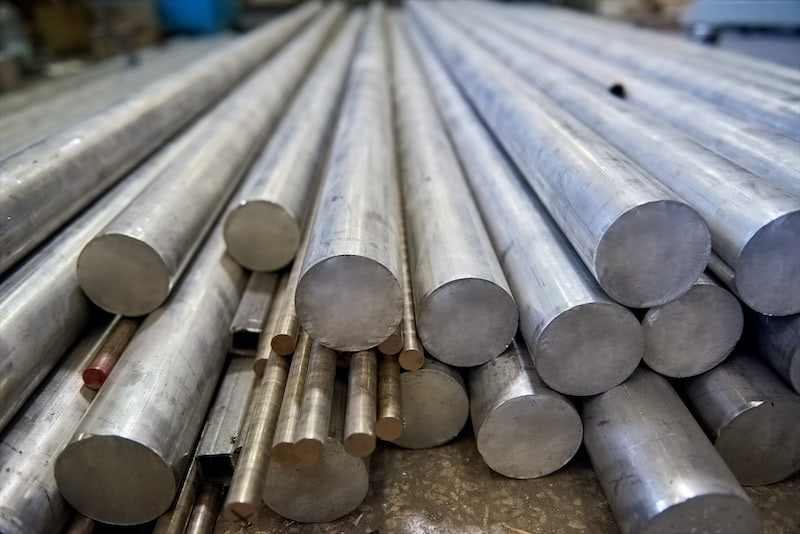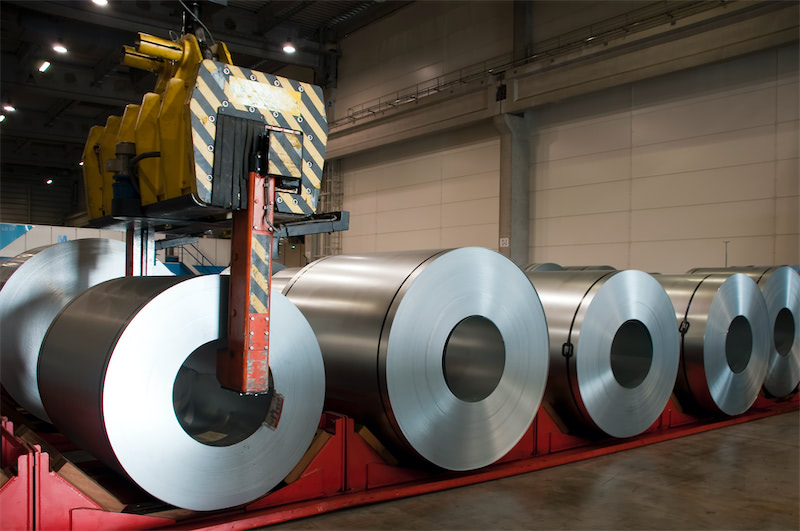Recently, there have been rumors in the steel market that the industry will implement production restrictions totaling 50 million mt to address changes in the market's supply and demand structure in recent years. At Baosteel's earnings conference on April 28, the company's management responded that production restrictions are highly likely, but the company is confident in its ability to cope. Baowu Group will strictly adhere to national regulations, and as Baosteel, a core subsidiary of Baowu Group, the group will provide preferential support in terms of capacity.
Cai Yanqing, Deputy General Manager of Baosteel, stated that if production restrictions are implemented in the industry, on the one hand, the company will receive support from the group in terms of resources. Through internal adjustments and resource optimization, the company will ensure full production and sales under the backdrop of production restrictions, maximizing production efficiency. Additionally, Baosteel will leverage the synergistic advantages of its multiple bases to flexibly allocate orders and resources, optimize production plans, and ensure high-load, high-efficiency production at the company.
At the earnings conference, the company's senior management also engaged in in-depth exchanges with investors on key issues such as the company's strategic planning and competitive landscape in the industry.
An investor inquired about the synergistic effects between Baosteel and Magang after Baosteel's equity participation in Magang, as well as the company's layout planning for long products.
Zou Jixin, Chairman of Baosteel, responded that in this equity participation in Magang, Baosteel not only values Magang's industry heritage and unique advantages but also focuses on the synergistic potential between the two parties in terms of efficiency, quality, cost, and management. Magang has significant room for optimization in areas such as improving sheet quality, controlling iron costs, and enhancing marketing and procurement management. Baosteel will leverage its own experience and technological advantages to assist Magang in achieving efficiency improvements. Baosteel plans to develop Magang into a base for the third-generation core strategic products, with Magang playing a crucial role in the strategy for high-quality long products.
In response to an investor's question about the competitiveness of Baosteel's automotive sheet business, Liu Baojun, a director and General Manager of the company, stated that despite the intensified competition in the steel industry, Baosteel's management remains confident in the future development of its automotive sheet business. Although the structure of the automotive market has changed, and the rise of new energy vehicles (NEVs) presents new challenges to traditional automotive materials, Baosteel's advantages in product R&D, supply chain management, and technical services remain prominent. The company will continue to increase R&D investment in new materials such as high-strength steel and high-end aluminum sheets, while also meeting the demand for lightweight, high-performance materials in NEVs by improving production efficiency and service capabilities.
Regarding the impact of trade frictions between China and the United States on Baosteel, which investors were concerned about, Zou Jixin stated that there is almost no direct impact on Baosteel's exports, while indirect exports have been slightly affected. The company will take proactive measures: on the one hand, it will adjust its export product mix and optimize overseas marketing channels to mitigate the impact of trade frictions; on the other hand, it will actively explore emerging markets along the "Belt and Road" initiative, achieving remarkable results. In addition, the company will also respond to unreasonable trade policies through legal means to strive for a fair and equitable trade environment.
Zou Jixin also responded to questions about the company's future capital investment planning. He stated that Baosteel has always maintained a rational approach to capital expenditures. In the future, the company will continue to make necessary investments in areas such as green and low-carbon development, strategic products, and equipment upgrades and replacements, while optimizing investment intensity. The company's capital expenditures will be gradually optimized, with a projected decrease in new project investments each year and a gradual decline in capital expenditure intensity. Future investment priorities will include the development of strategic investment projects, hardware investments in the field of artificial intelligence, and green, low-carbon, and smart manufacturing. The company plans to further enhance its competitiveness and market value through these investments.
![Before the holiday, the black chain is unlikely to see a trend-driven market [SMM Steel Industry Chain Weekly Report].](https://imgqn.smm.cn/usercenter/zUFfM20251217171748.jpg)

![[SMM Chromium Daily Review] Inquiries and Transactions Weakened, Chromium Market Showed Mediocre Performance Before the Holiday](https://imgqn.smm.cn/usercenter/ENDOs20251217171718.jpg)
